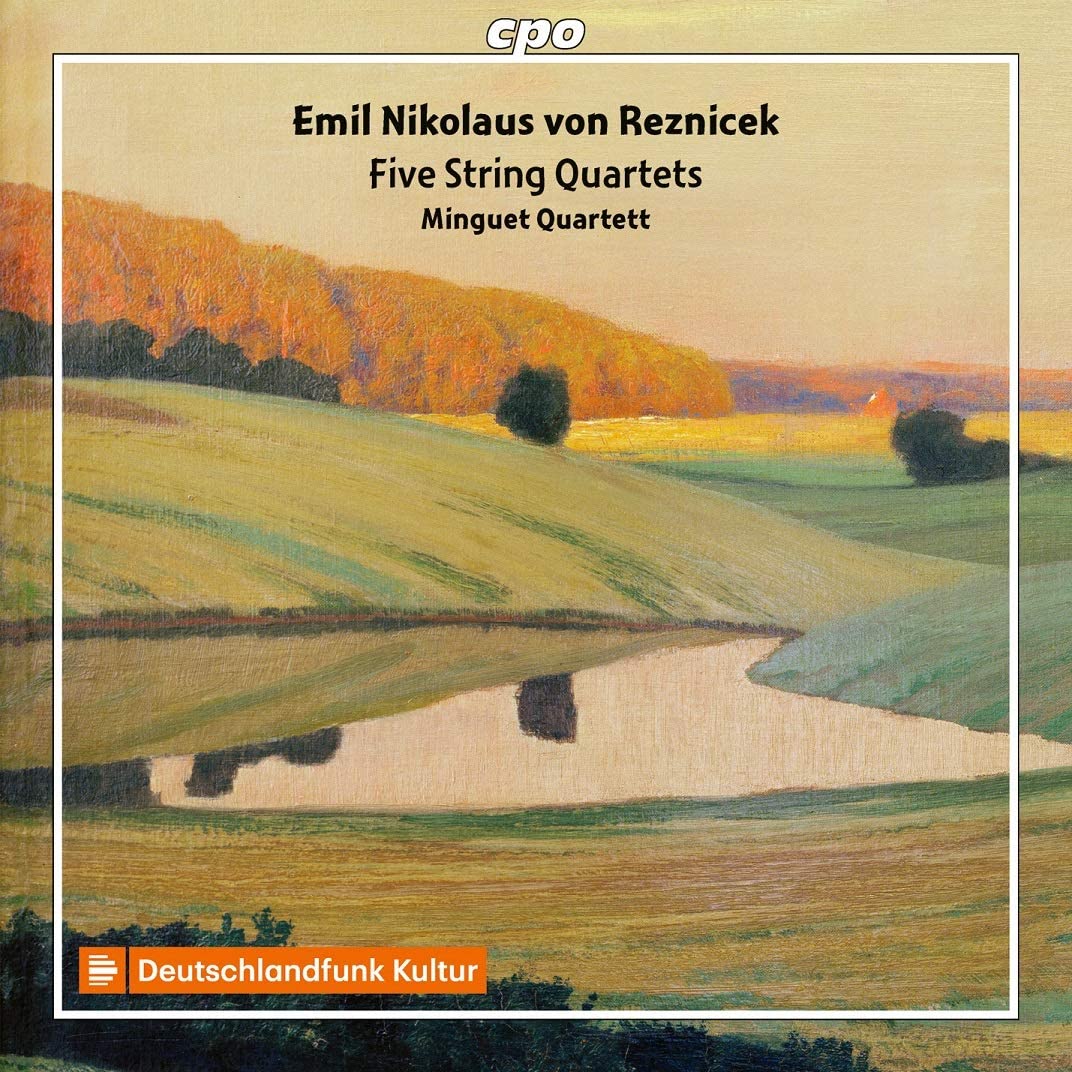REZNICEK Five String Quartets (Minguet Quartet)
View record and artist detailsRecord and Artist Details
Genre:
Chamber
Label: MDG
Magazine Review Date: 07/2020
Media Format: CD or Download
Media Runtime:
Mastering:
DDD
Catalogue Number: CPO555 002-2

Tracks:
| Composition | Artist Credit |
|---|---|
| String Quartet No. 1 |
E(mil) N(ikolaus) von Reznicek, Composer
Minguet Quartet |
| String Quartet No 2 |
E(mil) N(ikolaus) von Reznicek, Composer
Minguet Quartet |
| String Quartet No 3 |
E(mil) N(ikolaus) von Reznicek, Composer
Minguet Quartet |
| String Quartet No 4 |
E(mil) N(ikolaus) von Reznicek, Composer
Minguet Quartet |
| String Quartet No 5 |
E(mil) N(ikolaus) von Reznicek, Composer
Minguet Quartet |
Author: Peter Quantrill
Despite his Bohemian-sounding name, Reznicek was Viennese by birth and then a Berliner by career, and despite the vintage fizz of his six-minute champagne cocktail, the 78rpm-friendly overture to Donna Diana, he never belonged to the band of operetta composers bookended by Lehár and the Strauss family. If you randomised the tracks on disc 1 and the Presto à la hongroise finale of the First Quartet popped up, you might still imagine yourself on familiar territory, even in its klezmerish central section, and none the worse for that: cheers, and time for another one. In which event the Sixth Quartet’s strenuous pursuit of a tonally inscrutable goal would go down like an olive at the bottom of the glass.
Dating from 1881, the First Quartet belongs to Reznicek’s student years, failing law in Graz, suddenly finding his métier as a composer in Leipzig and establishing his reputation long before the success of Donna Diana in 1894, first in Prague and then under Mahler back in Vienna. The remainder of his quartet output post-dates a decisive move to Berlin in 1902, a matter of months after Schoenberg had done likewise. The chronology is complex – untangled by the booklet-note writer, who makes no attempt to hide his disappointment over the omission of the Second Quartet – but it’s clear from the fraught progress and exposed nerve-ends of the Third (like the Second, cast in a late-Beethovenian C sharp minor) that by 1920, Reznicek too was breathing the air of other planets in the German capital, though he had no truck with atonality.
The Third also featured on a Nimbus album from the Franz Schubert Quartet (1/98, when it was classed as No 1), but at every turn the Minguets make a more persuasive case for Reznicek’s intriguingly liminal standpoint between red-blooded Romanticism and incisively drawn Expressionism. Further comparisons could be made with contemporary quartets by Hans Gál and Karl Weigl, or the CPO series of Reznicek’s symphonies and other orchestral works, too often either stiff or inconsequential, all of them in favour of the present album. With path-breaking complete recorded cycles of Rihm and Widmann to their credit, as well as impressive CPO surveys of Mendelssohn and Brahms’s friend Heinrich von Herzogenberg, the Minguet musicians have the insight and the technique to place Reznicek in context, making compelling sense of the Fifth’s terse two-movement structure as well as the Sixth’s abrupt and wistful look back to a lost world in its concluding Andante con variazioni. Beautifully balanced engineering from the radio studios in Cologne does full justice to both composer and performers.
Discover the world's largest classical music catalogue with Presto Music.

Gramophone Digital Club
- Digital Edition
- Digital Archive
- Reviews Database
- Full website access
From £8.75 / month
Subscribe
Gramophone Full Club
- Print Edition
- Digital Edition
- Digital Archive
- Reviews Database
- Full website access
From £11.00 / month
Subscribe
If you are a library, university or other organisation that would be interested in an institutional subscription to Gramophone please click here for further information.




